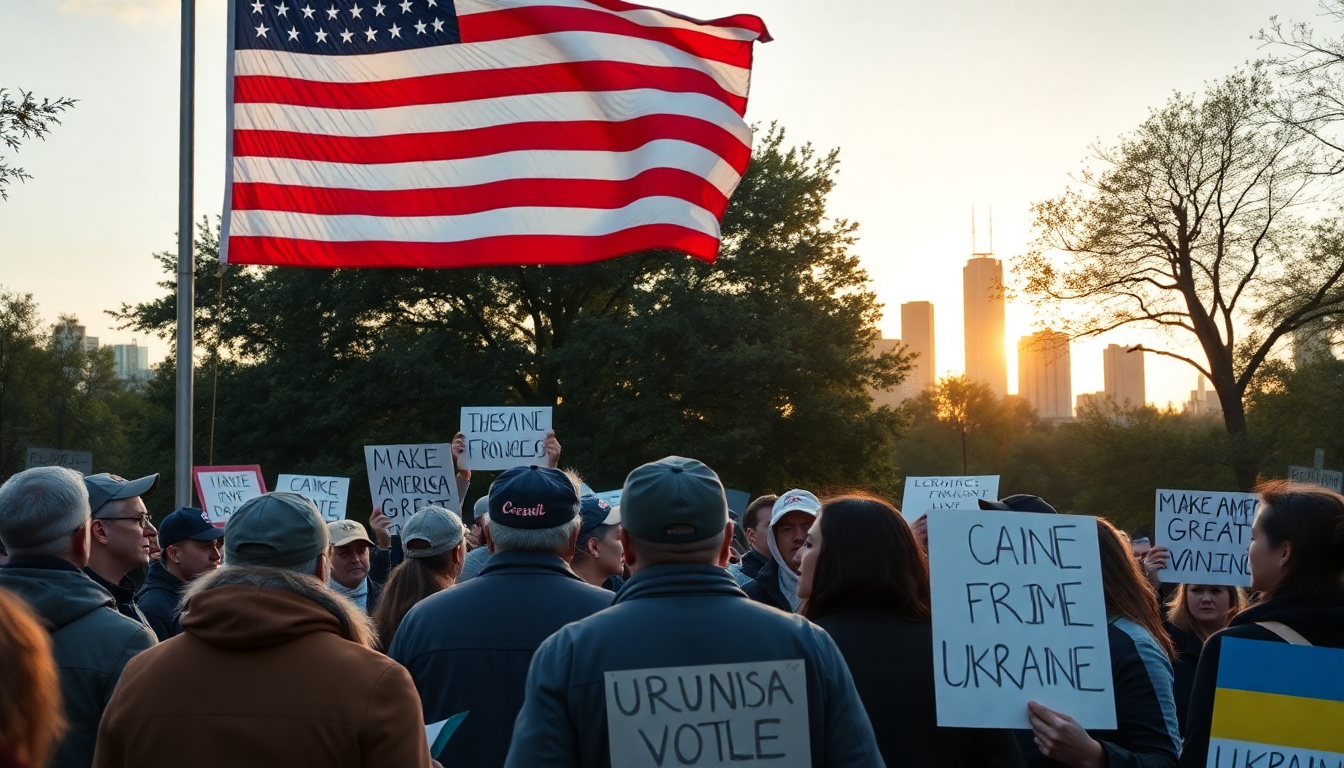Table of Contents
The world of American foreign policy is always changing, and right now, it’s particularly interesting among supporters of former President Donald Trump. Have you noticed how a significant number of Trump voters are pushing for stronger economic sanctions against Russia, especially with the ongoing conflict in Ukraine? This shift reflects a mix of national security worries and a desire for the U.S. to assert itself globally.
Current Voter Sentiment on Russia
A recent poll by the Vandenberg Coalition, conducted in late June, revealed that a striking 77% of Trump voters see Russia as a major threat to the United States. That’s a pretty alarming viewpoint, right? Even more telling is that 75% of them back the idea of increasing economic sanctions against Russia. Plus, 70% feel it’s essential to prevent any potential Russian invasions of other European countries. This strong support marks a noticeable change from the more isolationist tone that was part of Trump’s 2024 campaign.
Interestingly, the poll also shows that many pro-Trump voters, especially those who identify as MAGA supporters, are leaning towards a more active American role in world affairs. Only 29% of respondents preferred a reactionary stance on international issues, while a remarkable 71% want the U.S. to take the lead. This sentiment aligns with a broader aspiration for the U.S. to maintain its dominance on the world stage, especially against adversaries like Russia, Iran, and China. In fact, an impressive 92% of voters believe that a strong U.S. presence helps ensure global safety.
Legislative Moves and Strategic Implications
The implications of this polling data are significant. Senator Lindsey Graham recently disclosed that Trump is backing a bill designed to tighten sanctions on Moscow. This proposed legislation includes a hefty 500% tariff on products imported from Russia by countries that aren’t helping Ukraine. This bold strategy aims to cut off financial support from nations like India and China, which is crucial for sustaining Russia’s military operations.
Graham’s bill has already attracted over 80 co-sponsors, showcasing a strong bipartisan interest in tackling the Russian threat. He emphasized that this legislative effort is meant to pressure nations that continue to engage economically with Russia, reinforcing Trump’s stance on the global stage. This strategic shift not only responds to current geopolitical challenges but also seeks to reshape the narrative about America’s role abroad.
Historical Context and Future Outlook
The current attitudes among Trump voters are rooted in a broader historical context. For years, American military involvement overseas has been largely framed by controversial conflicts in Iraq and Afghanistan. However, recent airstrikes against Iranian nuclear facilities have changed that narrative, signaling a more assertive military posture. This action is intended to demonstrate that the U.S. is ready to robustly defend its interests and those of its allies.
Looking ahead, the polling data suggests that Trump’s voter base is increasingly in favor of a strong foreign policy that prioritizes national security and international leadership. This shift could have a significant impact on future electoral campaigns and legislative initiatives, as a strong majority of voters see keeping a check on adversaries as vital for global stability.
In conclusion, the changing opinions of Trump voters regarding economic sanctions on Russia and military engagement indicate a notable transformation in the conversation around American foreign policy. As these sentiments evolve, they are likely to influence not only the political landscape but also the strategic choices the U.S. makes moving forward.


